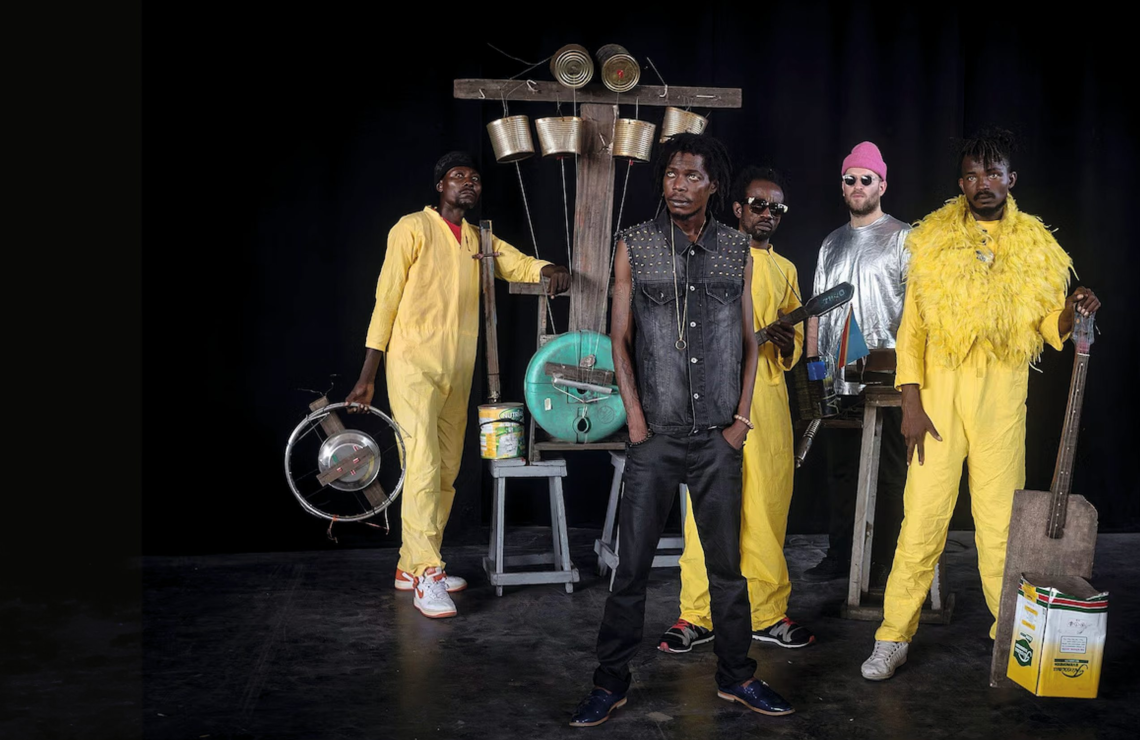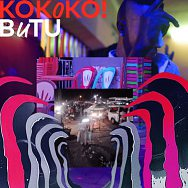
Kokoko!
Kinshasa
from sunset to sunrise
Kokoko's second album, Butu, finds the Congolese collective in better shape than ever, delivering music that’s a hybrid of ancestral African sounds, electro and kwaito.
AM : What was Butu inspired by ?

Kokoko!: The word «Butu» means night in Lingala, so the record is inspired by what happens in Kinshasa from sunset to sunrise. It's a bustling city, home to 18 million people, and night falls early all year round, at about 6pm, because it's close to the equator. So the senses are heightened, sounds seem louder and a huge number of people rush to do last minute shopping or activity before it gets really dark, due to frequent and long power cuts. There are lots of silhouettes, car headlights and colourful parasols with a light bulb here and there. It's noisy everywhere: the street vendors all have their own alarms to ensure that they're heard before they're seen, distorted megaphone loops, motorbike taxi horns, generators switching on, and so on. Butu plugs into all these street sensations, all the parties that go on during the night. It can be overwhelming, repetitive, like an organised chaos capable of arousing a feeling of trance, excitement... and more!
Why are hybrid sounds crucial to your music?
Because the combination of ingredients is what makes us original. The mix of electronics, saturated sounds, telephone recordings, Lingala vocals and DIY instruments, broad influences... With all that and the undeniable energy of Makara Bianko [KOKOKO!’s lead performer, Ed.], it has to be unique.
How would you describe your connection with Kinshasa?
A mixture of love and hate, frustration and excitement. Although it's magical, the city is becoming increasingly difficult to live in: power cuts, bad roads, lack of money... It can become dangerous because of the kulunas (machete-wielding gangs). As artists, we're protected in a way, because people value music, but life is still difficult. That's why the people of Kinshasa seek escape through art and performance.